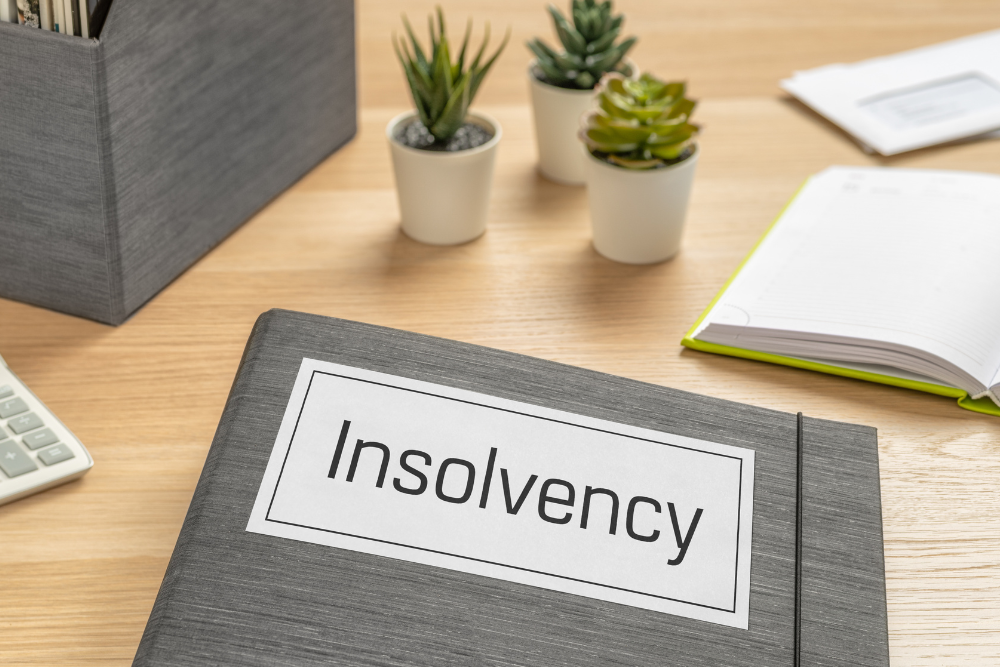The 3-Minute Rule for Insolvency Practitioner
Table of ContentsRumored Buzz on Insolvency PractitionerInsolvency Practitioner - QuestionsThe smart Trick of Insolvency Practitioner That Nobody is DiscussingNot known Details About Insolvency Practitioner All About Insolvency Practitioner
Whether or not you need to make use of an insolvency professional (IP) to liquidate your company depends on numerous aspects. While engaging an insolvency expert for all types of liquidation is not a legal demand, doing so can typically streamline the procedure and guarantee compliance with lawful requirements. Liquidating a business is an important choice that features substantial consequences.
It is a treatment utilized when a company does not have any type of creditors, or every one of their creditors can be repaid completely with legal passion. Understanding the various sorts of bankruptcy processes can help you establish the most effective training course of activity for your company's liquidation or various other official insolvency procedures itself.
This is required in order to adhere to lawful needs - Insolvency Practitioner. This is since IPs have the necessary certifications and experience to make certain that the liquidation procedure is carried out in conformity with all applicable legislations and policies. By involving a licensed insolvency specialist, you can have comfort knowing that your company's liquidation procedure will certainly be handled properly and in conformity with the pertinent legal demands
Getting The Insolvency Practitioner To Work
The insolvency practitioner is designated as a liquidator and is liable for taking care of the firm and liquidator's financial debts exceptional obligations and possessions. This process involves selling off the company's assets and dispersing the proceeds to creditors. Upon completion of the procedure, the business is removed from the register at Companies Residence.
Stopping working to do so can lead to personal responsibility for the business or director for the creditor's financial debts. Voluntary liquidation, that includes Creditors' Voluntary Liquidation (CVL) and Members' Volunteer Liquidation (MVL), is initiated by the company's supervisors and shareholders when they can no much longer pay their financial debts. In a CVL, the bankruptcy specialist is marked as the liquidator, in charge of handling company financial obligations and all company properties.

Examine This Report about Insolvency Practitioner
By analyzing the know-how and experience of potential bankruptcy experts, you can make sure that you select a specialist that has the essential qualifications to manage your business's liquidation process successfully. While bankruptcy practitioner-led liquidation is often the most appropriate program of activity for business dealing with insolvency, there are alternate techniques to take into consideration, such as striking off and partial liquidation.
It's vital to examine all available choices prior to choosing the following finest option or course of activity for your organization. Striking off firms' signs up is a much more uncomplicated and cost-efficient means to shut dormant or little business without any debts or possessions. To strike off a business, its name is removed from the Companies House register by submitting kind DS01.
Prior click now to selecting striking off, it's important to evaluate the advantages and drawbacks of this approach and consider whether it's the right selection for your service. Partial liquidation is another option to bankruptcy practitioner-led liquidation, where a firm sells off specific assets and liabilities while continuing to operate with the remaining properties and obligations.
A Bankruptcy Expert will certainly be able to suggest you of the very best strategy to take and make sure that everything runs efficiently. Sadly, it is not possible to liquidate a firm without a liquidator. Appointing an authorized insolvency professional is needed for the process of voluntary liquidation to start.
The Only Guide for Insolvency Practitioner
It is feasible to shut and liquidate your company without making use of a liquidator, given your business is solvent and you satisfy the eligibility needs to dissolve or liquidate it. Nevertheless, if your company is financially troubled, you may be needed to utilize a liquidator and begin formal bankruptcy treatments. Here are some other interesting posts concerning business liquidation in the UK:.
Remaining in a setting where you're unable to pay your company's creditors is very difficult. In an attempt to prevent enhancing the degree of financial debt, lots of firms attempt to discuss directly with their lenders and concur to an informal arrangement. If the debt is quite small and owed to one lender, and the financial institution is being participating, participating in an casual financial debt setup is Click This Link possibly the very best service, rather than looking the internet for 'an insolvency practitioner near me'.
On the various other hand, if there are numerous lenders and the degree of financial obligation is large, creditors might not be so prepared or participating. To avoid liquidation or insolvency, it is far better to employ a bankruptcy practitioner to prepare official propositions and work out with creditors on your behalf.
Top Guidelines Of Insolvency Practitioner
Whilst it is a means to handle debt, there are substantial risks included with this type of important link financial obligation arrangement - Insolvency Practitioner. If a lender agrees to get in right into an informal setup (IA) wherein the debtor has actually consented to make regular, if reduced, repayments to settle the debt, it's vital to stick to the contract

The lender is within their legal rights to back out of the arrangement and application the courts for your company to be sold off at any type of time. An official arrangement that has been recommended by a bankruptcy expert on your behalf, and agreed by a financial institution, offers a much safer choice.